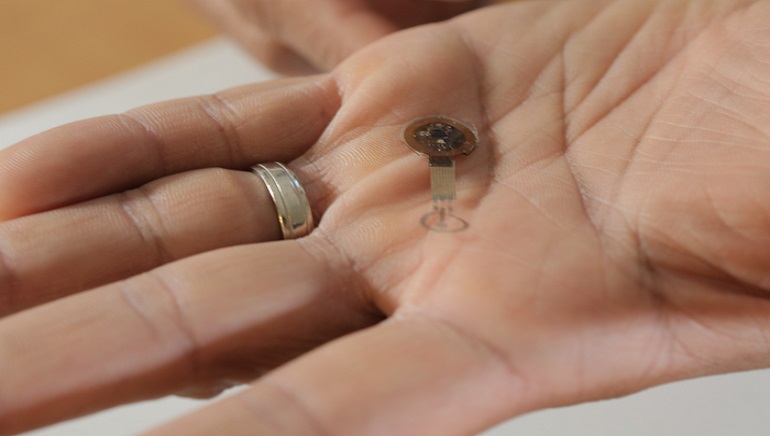Northwestern University researchers have developed a first-of-its-kind small, stretchable bandage that uses electrotherapy to a wound site to accelerate the healing process.
In an animal study conducted by the US university, the new bandage healed diabetic ulcers 30% faster when applied for just 30 minutes per day. It also actively monitors the healing process and easily dissolves into the body when no longer needed. The new device could prove to be a useful tool for patients with diabetes, whose ulcers can lead to serious complications.
Clinicians have used electrotherapy for healing in the past as well, but most of that equipment included wired, bulky apparatuses that could only be used under supervision in a hospital setting. The researchers have now developed battery-free, wireless bandages that deliver healing electrical signals to wounds. The innovation can be wirelessly controlled by a physician.
The small, flexible bandage is made up of a smart regenerative system that contains two electrodes. The electrodes are designed from molybdenum, a metal widely used in electronic and semiconductor applications. The researchers discovered that when molybdenum is thin enough, it can biodegrade, which means the device can simply dissolve into the body once the wound is healed.















